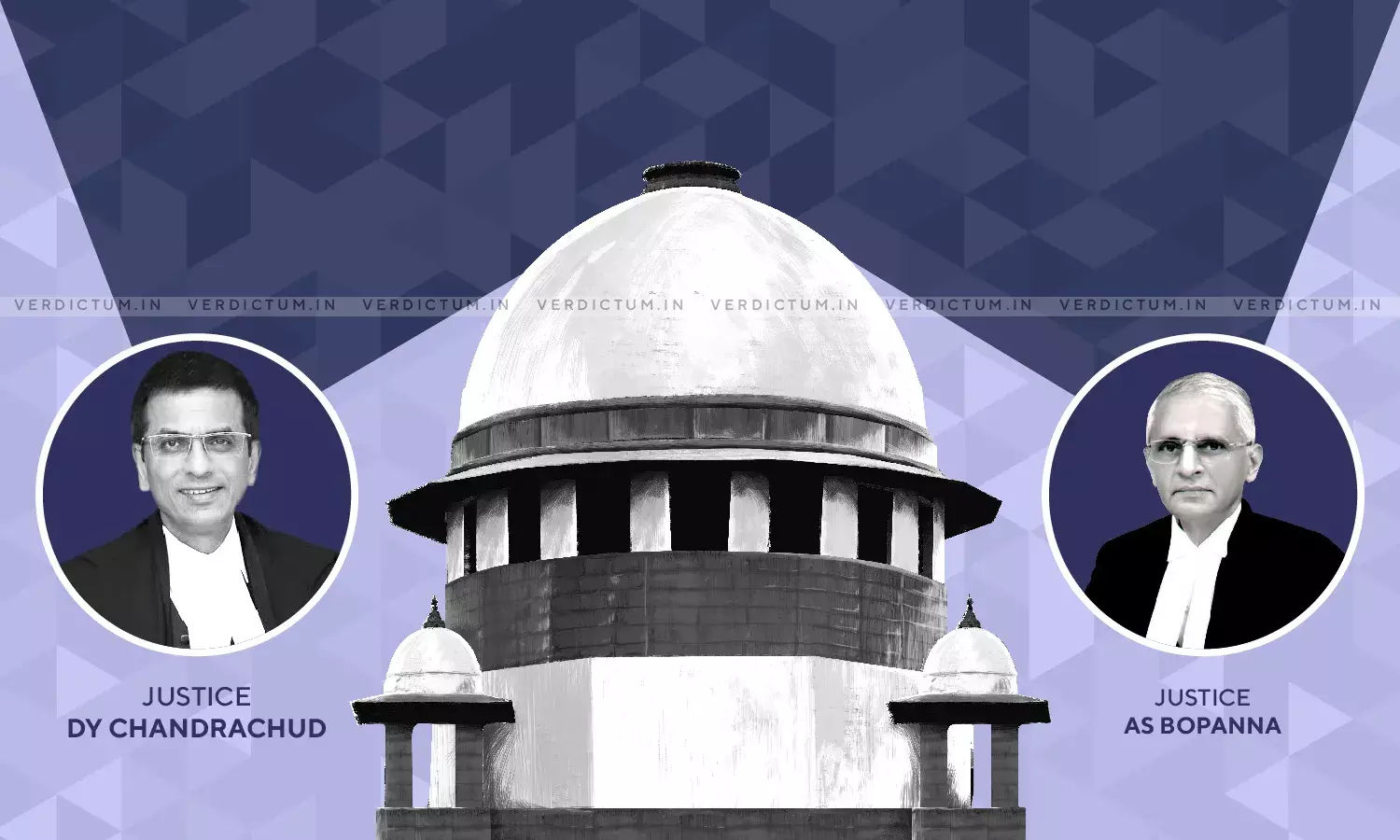Section 26(6A) Of Maharashtra VAT Act– Amount Deposited Under Protest Can Be Adjusted Against Mandatory Pre-Deposit For Filing Appeal: Supreme Court

A two-judge Bench of Justice Dr. DY Chandrachud and Justice AS Bopanna has held that the amounts which have been deposited by the Appellant under protest to an order of assessment can be adjusted against the mandatory pre-deposit required for filing an appeal under Section 26(6A) of the Maharashtra Value Added Tax Act 2002.
Senior Counsel Mr. V Sridharan appeared for the Appellants, while Chief Standing Counsel for the State of Maharashtra Mr. Rahul Chitnis appeared for the Respondent during the proceedings before the Court.
An appeal was preferred before the Supreme Court assailing the order of the Division Bench of the Bombay High Court which had dismissed the petition of the Appellant and held that once an order of assessment had been passed, any amounts which have been paid albeit under protest, would have to be adjusted against the total tax liability and the demand to follow.
The High Court had observed that the Appellant was duty-bound to deposit 10% of the total tax liability after adjusting the amount which had already been paid under protest by the Appellant, prior to the order of assessment.
In this case, the Appellant was a public limited company engaged in the manufacture and sale of oleo-chemicals and personal care products. The Appellant was served with a show-cause notice after an investigation was carried out by the Sales Tax Department at the former's premises. The notice was related to the sales tax liabilities to be paid by the Appellant. Subsequently, the Appellant made a protest payment towards tax and interest.
Later, Sections 26(6A), 26(6B), and 26(6C) were introduced into the MVAT Act by Maharashtra Act XXXI of 2017 mandating a pre-deposit for the filing of appeals. An appeal was made by the Appellant against the order of assessment which was rejected by the Appellate Authority.
The Appellant was informed that the payments made under protest could not be considered towards pre-deposit for the purpose of Section 26(6A).
The issue which was dealt with by the Court was –
Whether amounts that have been deposited under protest prior to an order of assessment can be adjusted against the mandatory pre-deposit required for filing an appeal under Section 26(6A) of the Maharashtra Value Added Tax Act 2002.
The Apex Court after referring to Section 26(6A) noted, "The aggregate of the amounts stipulated in the sub-clauses of the provision has to be deposited and proof of payment is required to be produced together with the filing of the appeal."
"The amount which has been deposited by the appellant anterior to the order of assessment cannot be excluded from consideration, in the absence of statutory language to that effect. A taxing statute must be construed strictly and literally. There is no room for intendment," the Bench opined.
Additionally, the Court held, "If the legislature intended that the protest payment should not be set off as the deposit amount, then a provision would have to be made to the effect that 10 per cent of the amount of tax in arrears is required to be deposited which is not the case."
The Court analyzed the findings of the High Court and observed, "Neither of these considerations can affect the interpretation of the plain language of the words which have been used by the legislature in Section 26(6A)."
The Bench furthermore held that the provisions of a taxing statute have to be construed as they stand, adopting the plain and grammatical meaning of the words used.
Further, the Court noted that the Appellant was liable to pay under Section 26(6A), 10 percent of the tax disputed together with the filing of the appeal, in this context, the Bench further opined –
"There is no reason why the amount which was paid under protest, should not be taken into consideration. It is common ground that if that amount is taken into account, the provisions of the statute were duly complied with."
Accordingly, the Court held that the rejection of the appeal was not in order and the appeal had to be restored to the file of the Appellate Authority, subject to the verification that 10 percent of the amount of tax disputed had been duly deposited by the Appellant.
With such directions, the Court allowed the appeal and set aside the impugned order of the High Court, and restored the appeal on the file of the Appellate Authority.
Click here to read/download the Judgment

